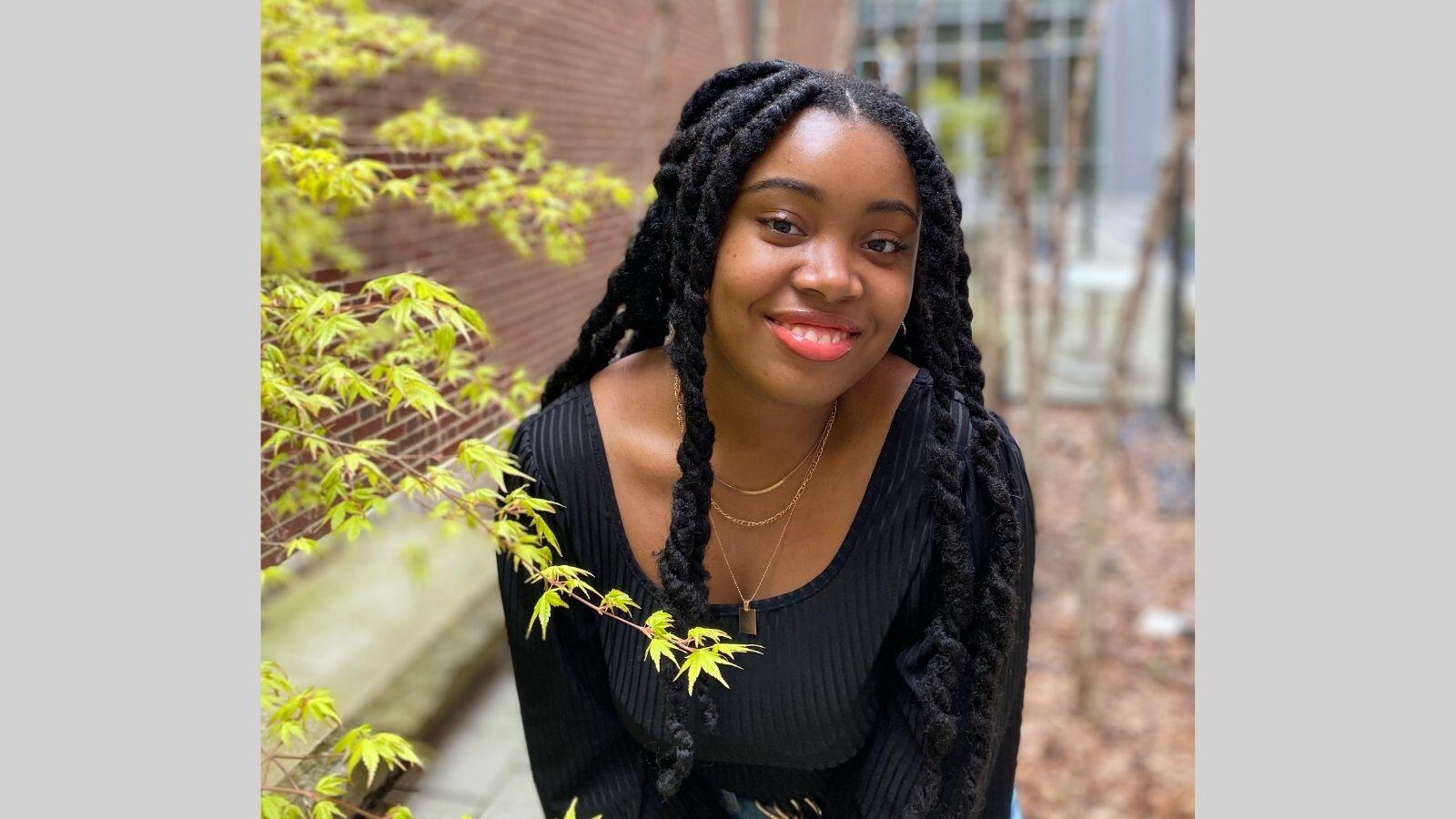Sophomore embraces food justice, offers advice for new students

We can’t get everything we want, and if you’ve ever wanted something really badly but didn’t get it, you know how true this statement is. This might resonate especially well with high school seniors who didn’t end up going to their dream college.
Sarah Tate, sophomore at the University of Illinois Urbana-Champaign, for example, said U of I wasn’t her first choice. Tate is studying Metropolitan Food & Environmental Systems (MFST) in the College of Agricultural, Consumer and Environmental Sciences (ACES). In the new MFST major, students learn about every aspect of building stronger and more sustainable food systems on both local and global scales. Learn more today.
The Lindblom Math and Science Academy graduate really liked her first year at Illinois, even with some classes being online because of the pandemic.
“I'm glad I ended up coming here because U of I opens you up to a lot of opportunities – opportunities I didn't think I would have,” Tate said.
What surprised her the most was the helpful and flexible ACES professors and staff who let Tate have a say in what courses would best fit her goals and interests.
“They’ve really helped me in trying to make my higher education my own and designing it the way I know would benefit me in the career I want to go into,” Tate said.
Right now, Tate is interested in becoming an urban planner.
In MFST, you learn why urban planning is an important component of a food system. You have the chance to delve deeper into higher level coursework in the Department of Urban & Regional Planning, too. This opportunity excites Tate, who hopes to pursue a master's degree in this area after learning about the entire food system.
This interest grew after she spent three summers working at Windy City Harvest, an urban farm in Chicago. The experience also exposed her to food justice and its complexity within the food system. Tate said food justice is about “making sure we keep integrity in how our food is grown and making sure that it’s accessible for everyone.”
“Honestly, if I wasn't exposed to Windy City Harvest, I don't think I would have chosen this career path,” Tate said. “It helped me realize there’s a problem when it came to food accessibility.”
Tate saw some these issues firsthand in high school. For example, she said for one of her friends, school was the only meal they ate because the grocery store was far from where their parents lived. Also, one of her friends had to take public transportation to Walmart for groceries and that an Uber could cost up to $87.
“It’s things like that that inhibit people from being able to access food,” Tate said. “Once I realized that was a problem where I lived and amongst my community, I started doing research, and that’s how I got into urban ag.”
Tate said once she came to U of I she not only learned more about urban agriculture but about how other subjects play a big role in that area.
“I've definitely learned the complexities of the food system and how interconnected everything is and how everything overlaps. You need a general understanding for each area like in the sciences, economics, in social geography, in social studies,” Tate said. “You have to be able to understand the system as a whole to be able to help in solving some of the big food system problems.”
This might sound like a lot at first, but these are the types of things MFST students learn in their first year at ACES. They don’t necessarily have to have a focus right away. Tate advises incoming students to explore their options before choosing a major if they don’t know exactly what they want to do.
“You don't need to really define your experience right now. Just take classes that you want to take and explore your interests so you can make the best of your college experience,” she said.